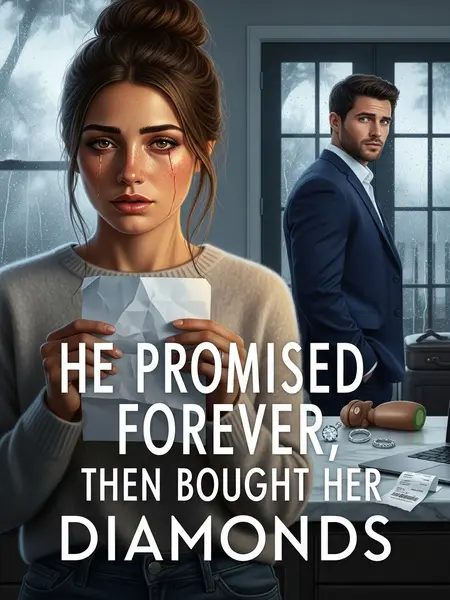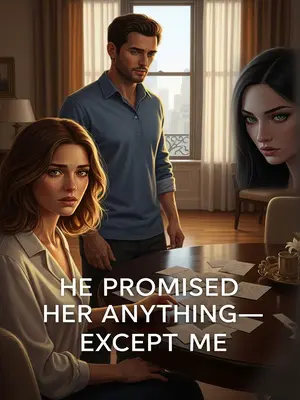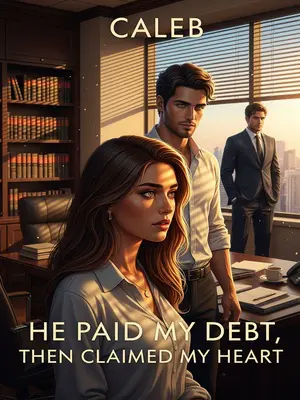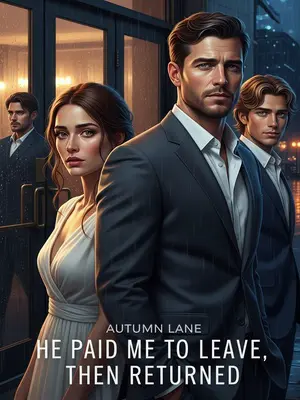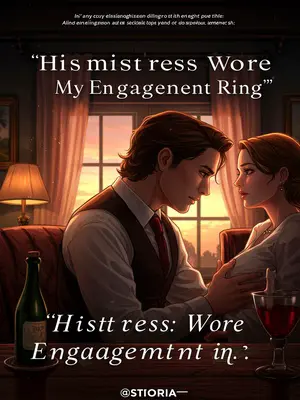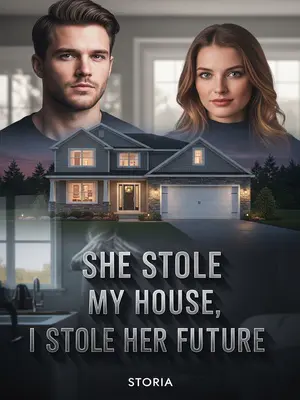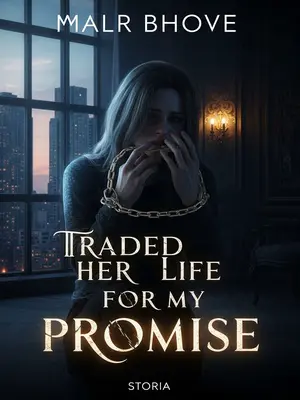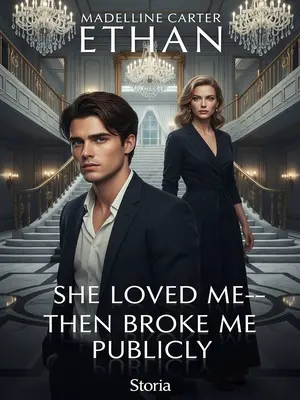Chapter 2: Divorce by Spreadsheet
"I've already talked to someone about a house in the Lincoln Elementary district. The down payment won't be a problem."
Carter’s voice broke the silence, practical and steady. He didn’t look at me, just tapped his phone, Zillow’s blue-and-white map glowing in his hand. The Lincoln Elementary district—everyone wanted in. He spoke like he was discussing a spreadsheet, not the end of a marriage. He fidgeted with his phone, thumb tapping the screen in a restless rhythm.
"When the time comes, you can take Daisy to the assessment. I'll give the enrollment office a heads-up."
He said it like it was just another task to cross off our shared to-do list. No hesitation, no drama. Just logistics.
Carter was driving, eyes flicking between the road and the Zillow app on his phone.
I watched his hands on the steering wheel, steady and familiar. He always drove like he could solve any problem if he just mapped it out right. The car smelled faintly of his aftershave and the coffee he’d spilled earlier. Outside, the city was all green lawns and faded Fourth of July banners—those old, sun-bleached flags, waving like relics of dreams that never quite came true. The kind of place where people still waved to their neighbors.
His tone was calm and certain, as if getting divorced was just a technical issue we needed to solve together.
It was almost impressive, the way he made it sound like we were collaborating on a science project, not splitting up our lives. Almost impressive, really. I wondered if he’d rehearsed this in his head, making sure not to miss a single detail. Maybe he even had a checklist.
"Also, if Daisy wants a better shot at the gifted program, I can mentor her on a science project."
He rattled off options like he was announcing the first-round pick at the NFL draft—always thinking two steps ahead. I wondered if he’d already drafted an email to the admissions office, just in case.
"My old classmate is a judge for the state elementary science fair..."
He kept droning on about how refinancing would be easier after the divorce, the morning light in the new place, what kind of renovations we'd want…
His voice felt muffled and distant, like I was hearing him through glass.
I watched his lips move, but the words didn’t reach me. It was like I was underwater, everything muted and slow. The world outside looked sharper, somehow—kids on bikes, a dog chasing a squirrel, sunlight flickering through the trees.
I stared at my phone screen, unable to process a single word he was saying.
I squeezed the phone so hard my knuckles went white. All I could see were the two emails, blinking at me like a cruel joke.
It was like a tennis match in my mind—past Carter, future Carter, love and betrayal volleying between them. I couldn't keep up. I tried to focus on my breathing, counting the seconds between each inhale, grounding myself in the rhythm.
Fifteen years ago, he wrote, “Harper, does our kid laugh as much as you?”
His words echoed in my mind, bittersweet and soft. I thought of Daisy’s laugh, bright and bubbling, and wondered how much of that was me, how much was him, and how much would survive this.
Fifteen years later, the diamond ring he bought for someone else was signed “Sophia Lane.”
Her name felt like an intrusion, sharp and foreign in my inbox. I stared at it, daring myself not to flinch. The world felt suddenly smaller, tighter, like the air had thinned. My chest tightened, and for a second, I wasn’t sure I could breathe.
Suddenly, I remembered something I'd once heard:
After thirty, nothing hurts enough to make you wail anymore. It's just little stabs, over and over.
The phrase came back to me, clear as day. I remembered hearing it at a baby shower, of all places—one of the moms, wine in hand, laughing a little too loudly. I hadn’t understood then. I did now.
Like right now.
The ache was everywhere and nowhere, a thousand tiny cuts instead of one clean break. I blinked hard, willing myself not to cry in the passenger seat of Carter’s car.
Like how he's still seriously planning our daughter's future, without noticing how far away I've drifted.
He was so focused on the roadmap ahead, he didn’t see that I’d already taken the next exit. Funny how you can be sitting right next to someone and already be gone.
Like when his phone suddenly buzzed with an emergency call from the lab.
The ringtone was his usual—something generic, but it cut through the silence like a siren. I watched his face shift, the professional mask sliding into place.
He frowned, picked up, and his voice instantly shifted into the steady, reliable Professor Whitman:
“Data anomaly? I'll be right there.”
He sounded so sure, so competent. I almost envied the certainty in his tone, the way he could slip into problem-solving mode at the drop of a hat.
He quickly turned the car around and dropped me off at the curb.
The tires crunched over the gravel as he pulled over, barely slowing down. He didn’t even put the car in park—just leaned over, eyes apologetic but distracted.
Before leaving, he still remembered to turn back and call out:
“Harper, sorry, this one's urgent. We'll go to the county clerk another day.”
He always remembered the details, even when everything else was falling apart. I nodded, not trusting myself to speak.
"Oh, and don't forget to make a copy of Daisy's vaccination record. We'll need it for district enrollment."
His voice was gentle, almost fatherly. For a second, I wondered if he realized how strange this all was—divorcing as a team, still co-parenting like nothing had changed.
